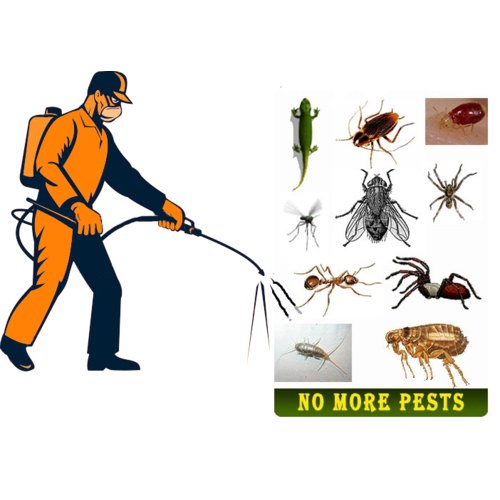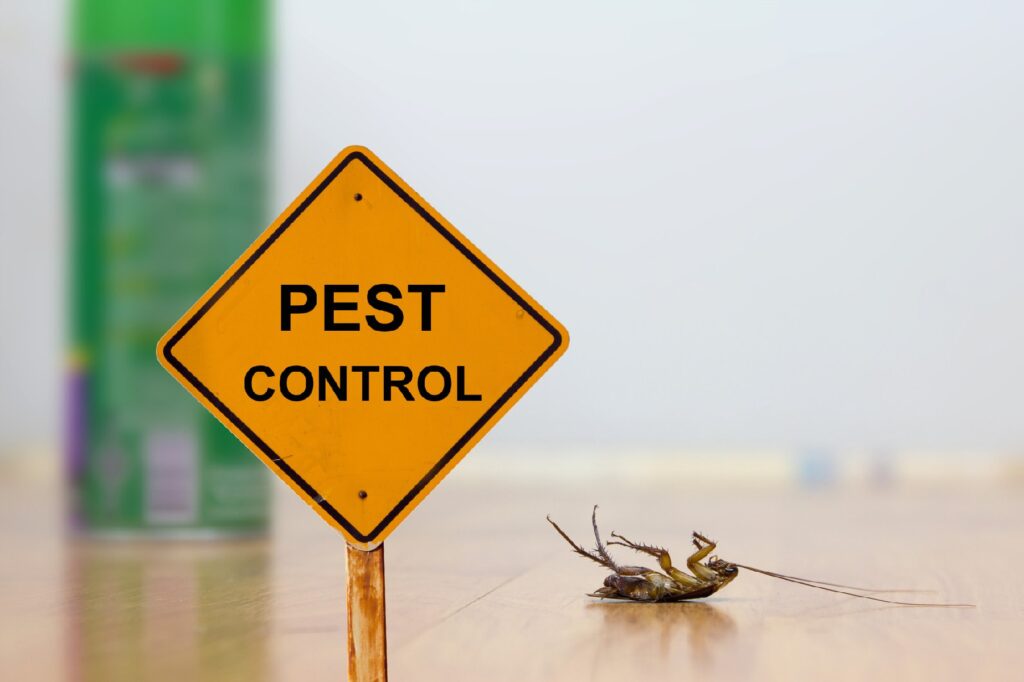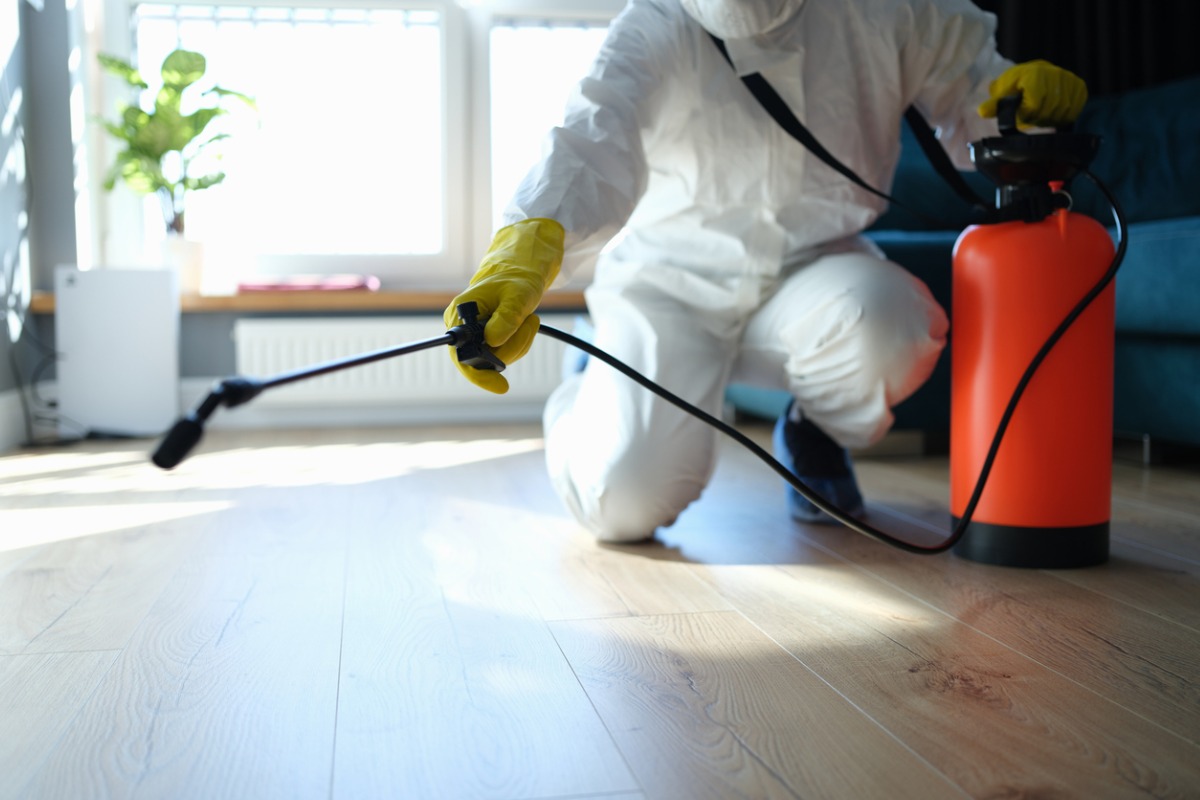Safe and Trusted Pest Control for Lasting Defense
Effective pest monitoring needs a complex technique that balances eco-friendly integrity with the requirement for effective pest suppression. The subtleties of these approaches might not be instantly clear, motivating a closer evaluation of the practices that can lead to lasting insect control outcomes.
Comprehending Parasite Control Methods
Insect control encompasses a selection of methods targeted at handling and eradicating undesirable insects and rodents that can endanger both health and residential property. Comprehending these approaches is crucial for effective pest monitoring.
The primary classifications of pest control approaches include mechanical, biological, and chemical techniques. Mechanical approaches involve physical obstacles and traps to prevent parasite access and capture unwanted species. Utilizing displays on windows or using sticky catches can substantially lower pest populaces without introducing unsafe substances - exterminator coquitlam.

Chemical parasite control is frequently the most recognized method, using pesticides to eliminate pests. These chemicals can be reliable but have to be used with caution to stay clear of adverse results on non-target species and the environment.
Advantages of Eco-Friendly Solutions
Just how can environment-friendly solutions change bug control techniques? The fostering of eco-friendly bug control approaches offers numerous benefits, significantly enhancing the effectiveness and security of parasite administration (exterminator coquitlam). First of all, these solutions make use of natural active ingredients, decreasing the reliance on dangerous chemicals that can position dangers to human wellness and the environment. This change not just shields family pets and family members yet additionally lessens the capacity for dirt and water contamination.

Another benefit is the positive effect on regional biodiversity. Eco-friendly options are developed to target specific pests while maintaining beneficial insects and wild animals, advertising a balanced ecosystem. This method aligns with the growing consumer need for lasting methods, enhancing the track record of pest control companies.
Integrated Parasite Management Methods
The application of eco-friendly services normally causes the adoption of Integrated Parasite Management (IPM) strategies, which better boost parasite control effectiveness. IPM is an alternative strategy that integrates numerous methods to take care of parasite populaces while lessening environmental impact. This strategy highlights using biological, cultural, mechanical, and chemical controls, guaranteeing a balanced and sustainable approach of bug management.
One essential aspect of IPM is the extensive assessment of pest task and environmental problems. By monitoring bug populations and determining their life cycles, professionals can apply targeted treatments that interrupt the pest's environment or lifecycle, decreasing dependence on chemical pesticides. Furthermore, social techniques such as plant turning and environment manipulation can significantly reduce pest facility and recreation.
One more vital part is making use of organic control representatives, such as advantageous bugs or microbes, which can normally suppress parasite populations. When chemical applications are essential, IPM focuses on making use of low-risk pesticides and applies them selectively, reducing exposure to non-target microorganisms and humans.
Incorporating IPM strategies not only improves insect control performance but also promotes a safer community, aligning with the growing demand over at this website for lasting methods in bug management.
Safe Practices for House Owners
Understanding the relevance of safe methods in pest control can equip homeowners to properly take care of parasite concerns while safeguarding their health and wellness and the setting. Implementing preventive procedures and non-toxic techniques is critical in reducing exposure to harmful chemicals.
Home owners should first examine their atmosphere for conditions that bring in insects, such as standing clutter, food, and water waste. Regularly cleaning and sealing access points can prevent pests from attacking the home. Utilizing natural deterrents, such as necessary oils or diatomaceous earth, can give effective options to chemical pesticides.
When chemical treatments are needed, homeowners need to choose for items that are specifically identified as risk-free for property usage. It is important to follow application standards carefully to prevent too much exposure. Utilizing targeted therapies in areas where insects are determined, instead than blanket spraying, can substantially lower chemical use.
Last but not least, preserving open communication with bug control experts is important. Property owners ought to ask regarding the safety and security of items used and demand environmentally friendly choices whenever possible. By adopting these risk-free practices, property owners can create a much healthier living atmosphere while properly taking care of parasite issues.

Tips for Long-Term Security
Developing a bug management method that highlights lasting security can substantially improve the efficiency of the secure techniques formerly discussed. To achieve this, house owners should execute routine examinations of their residential property, focusing on hidden locations such as attics, cellars, and crawl rooms. Early detection of insect activity is essential in avoiding invasions from taking hold.
These methods reduce attractants that draw parasites into the home. Securing entry points, such as splits around doors and home windows, can effectively obstruct possible parasite accessibility.
Landscape design should also be thought about; keeping plants cut and maintaining a range in between greenery and the home decreases hiding spots for bugs. Utilizing natural deterrents, such as important oils or diatomaceous planet, can additionally prevent infestations without considering rough chemicals.
Lastly, teaming up with a professional insect control solution for regular assessments can offer an added layer of safety. These professionals can use customized referrals and advanced therapies, ensuring that your home stays secured versus bugs in the lengthy term.
Conclusion
In verdict, trustworthy and risk-free parasite control needs a multifaceted approach that stresses green approaches and integrated bug management. By executing natural deterrents, performing normal assessments, and keeping appropriate cleanliness, homeowner can substantially lower pest populations while shielding valuable insects and the atmosphere. Collaboration with specialist parasite control services enhances the performance of these techniques, guaranteeing tailored options that offer enduring defense and assurance against future problems.
Effective bug monitoring calls for a complex technique that balances ecological stability with the need he said for reliable pest suppression. The fostering of environmentally friendly insect control approaches provides many benefits, dramatically improving the effectiveness and safety of insect administration.The execution of eco-friendly remedies naturally leads to the adoption of Integrated Parasite Administration (IPM) techniques, which even more enhance parasite control efficacy. exterminator coquitlam. By keeping an eye on insect populations and identifying their life cycles, practitioners can apply targeted interventions that look at this website interfere with the insect's environment or lifecycle, minimizing reliance on chemical pesticides.In conclusion, risk-free and trusted insect control calls for a complex technique that emphasizes green methods and incorporated parasite monitoring